If summer is fast approaching and your car's AC system is running low on refrigerants, then it can be pretty tempting to fill it up yourself. However, if you overcharge the AC system, it can put great stress and strain on your car overall. We researched to bring you the answer of whether or not overcharging your car AC can damage the compressor.
The short answer to this question is a simple yes. Overcharging your car's AC system will create too much pressure for the compressor to handle. Eventually, that pressure will cause leaks and damage the seals, leaving you with a damaged compressor that needs replacement.
In this article, we will discuss the symptoms of an overcharged car AC system that you need to be aware of. Not only that, but we will also talk about how much it costs to repair an overcharged AC system and how much refrigerant the car AC needs in the first place. So, continue reading to find out more.
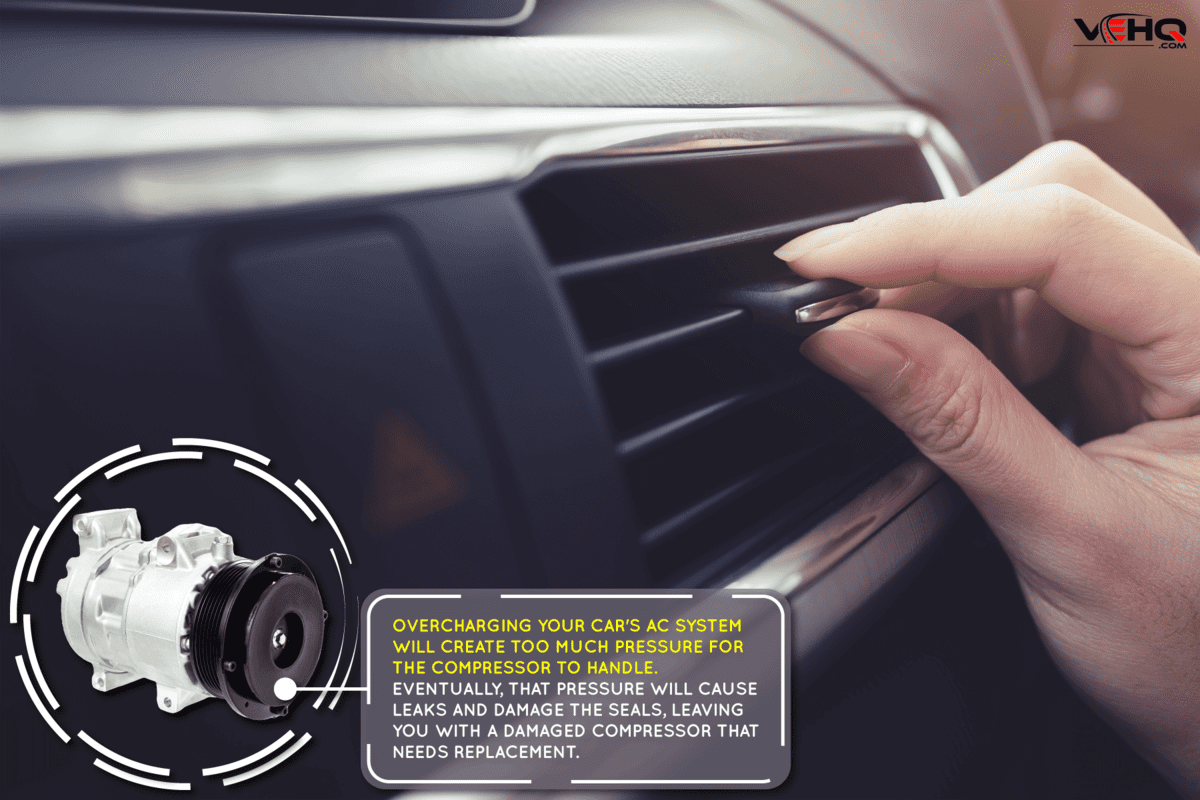
Overcharging A Car AC System, Can It Damage The Compressor?
Overcharging the car's AC system can seriously damage the overall components, most notably the compressor. That's because the compressor is responsible for containing the pressure of the refrigerant and turning it into cool air for you and everyone else inside the car to enjoy.
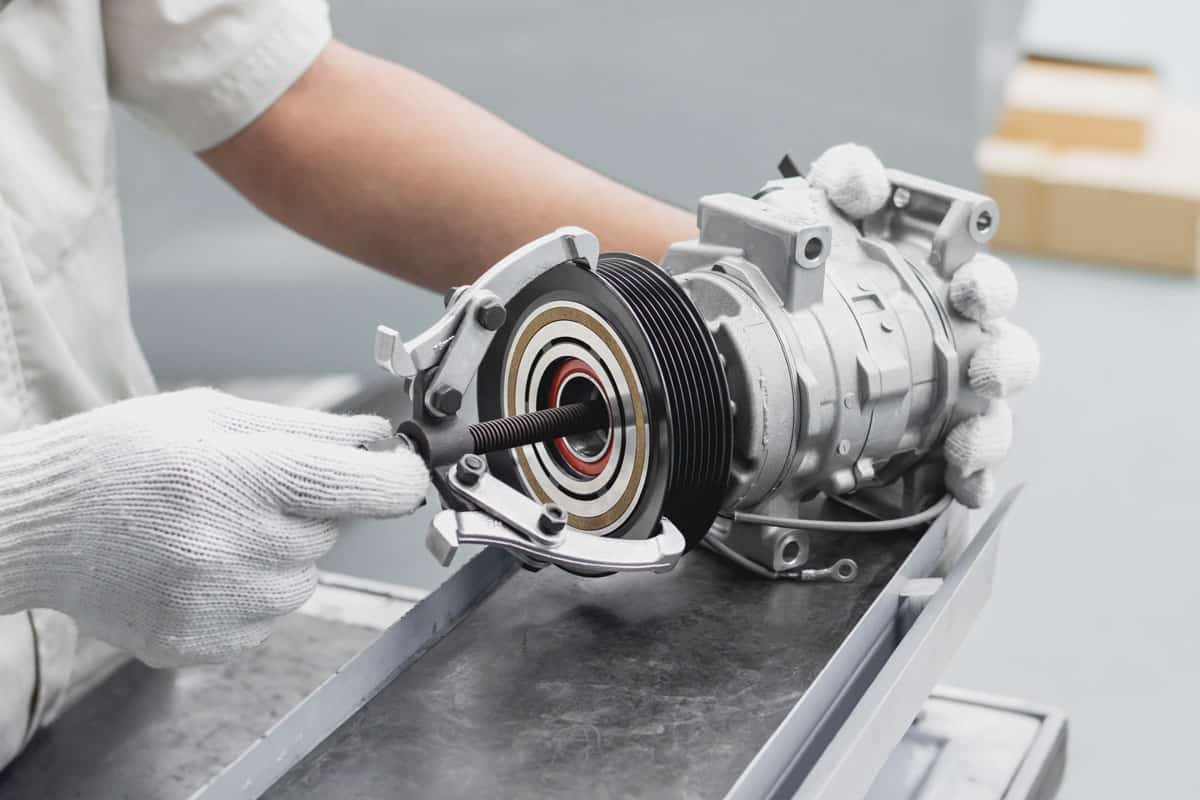
Too much refrigerant in the system can cause an imbalance within the compressor because it's struggling to contain the additional pressure. This will cause the liquid refrigerant to leak inside and, in turn, allows oil from the outside to get into the compressor and cause further damage. If you continue to ignore this issue, you'll end up with a broken compressor that needs replacement.
What Are The Symptoms Of An Overcharged Car AC System?
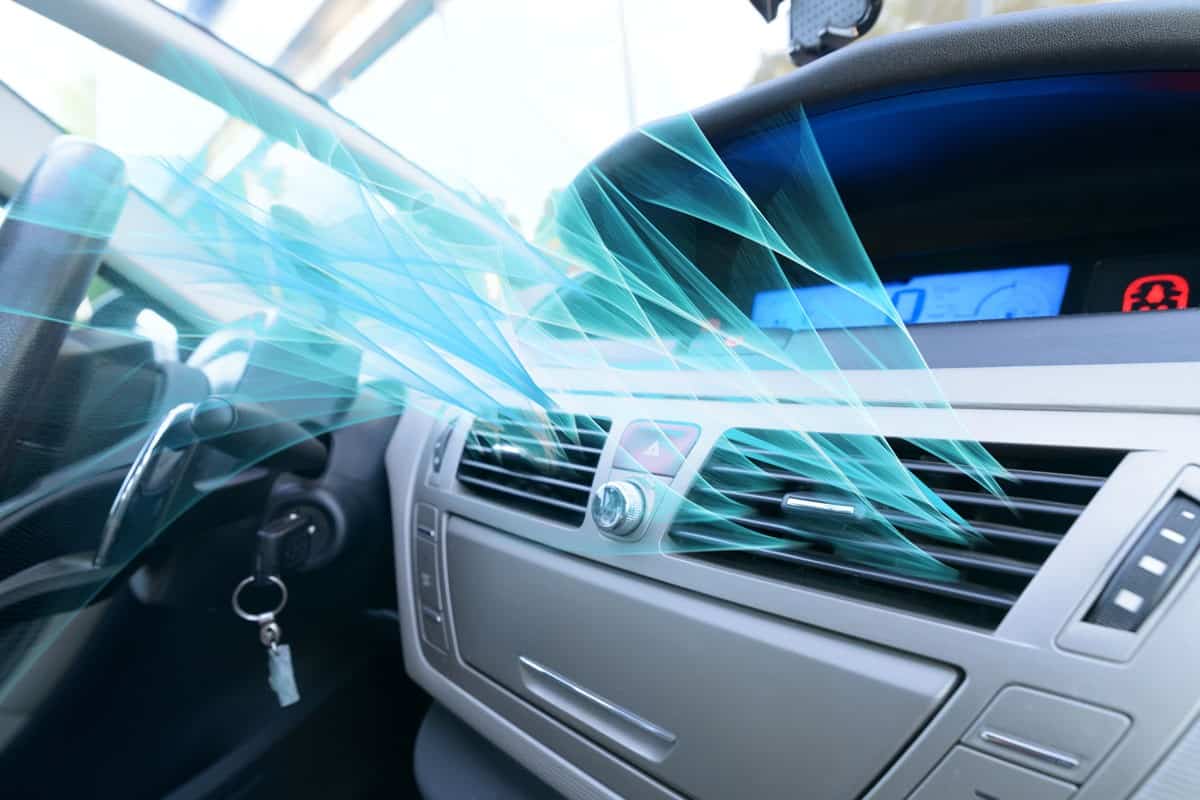
Do you have a hard time pinpointing whether you have an overcharged car AC system? If so, then this section is a must-read for you:
AC System Will Not Start
The first and most obvious sign that you have an overcharged car AC system is if it doesn't start. That's because most cars nowadays are equipped with an internal sensor that can tell you whether or not there's a refrigerant leak within the system. It can also tell you if there's too much or too little refrigerant inside the system. This feature is present in newer models. So if you own a fairly old car, it's likely that it doesn't come with this type of sensor.
When this issue happens, it's best to bring your car to a nearby auto shop to find out whether or not you're dealing with an overcharged AC system or if it just needs a refrigerant recharge.
Lack Of Cool Air
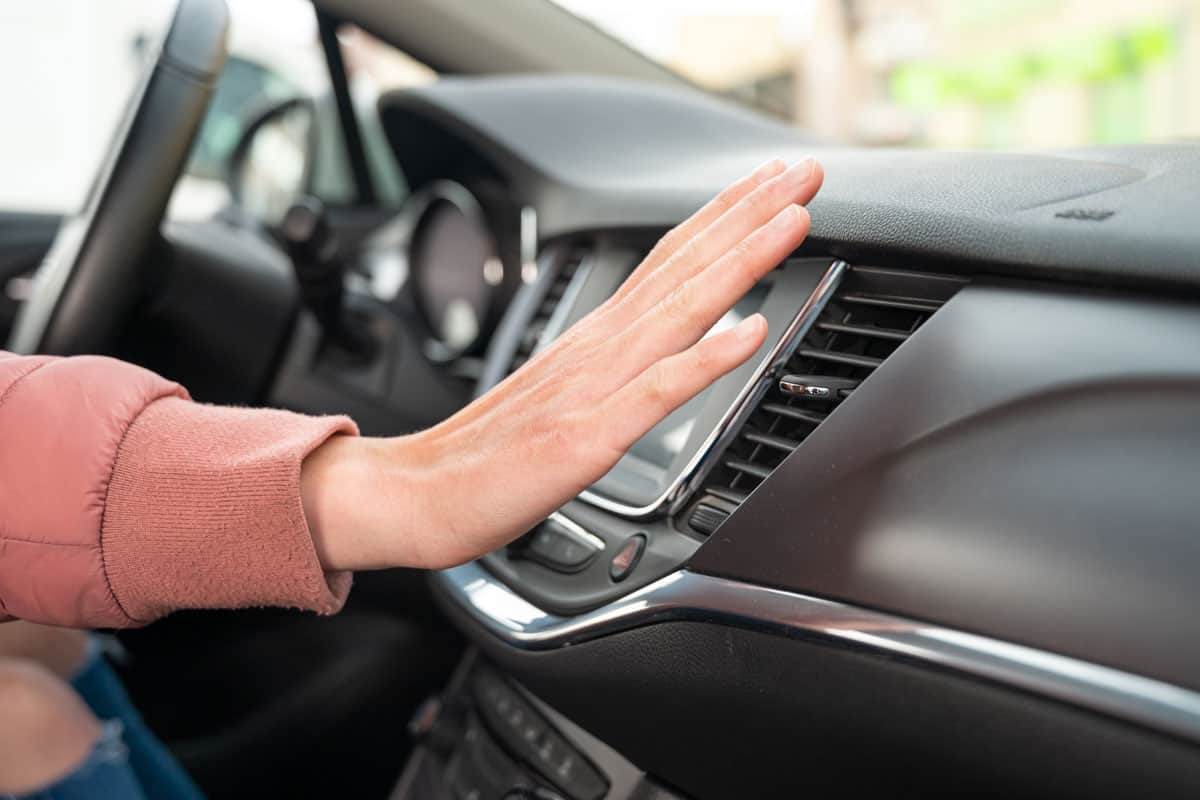
In most cases, the car AC system will still work. However, instead of blowing cool air, warm air will circulate inside your car's cabin.
You might think that too much refrigerant inside the AC system will cause more cool air to blow out of the vents. However, the opposite is true. Since there's too much refrigerant, the compressor cannot turn that into cool air and releases warm air instead.
A refrigerant leak can also cause a lack of cool air. A sweet yet chemical-laden scent usually accompanies a leak in the system.
High-Pressure Readings
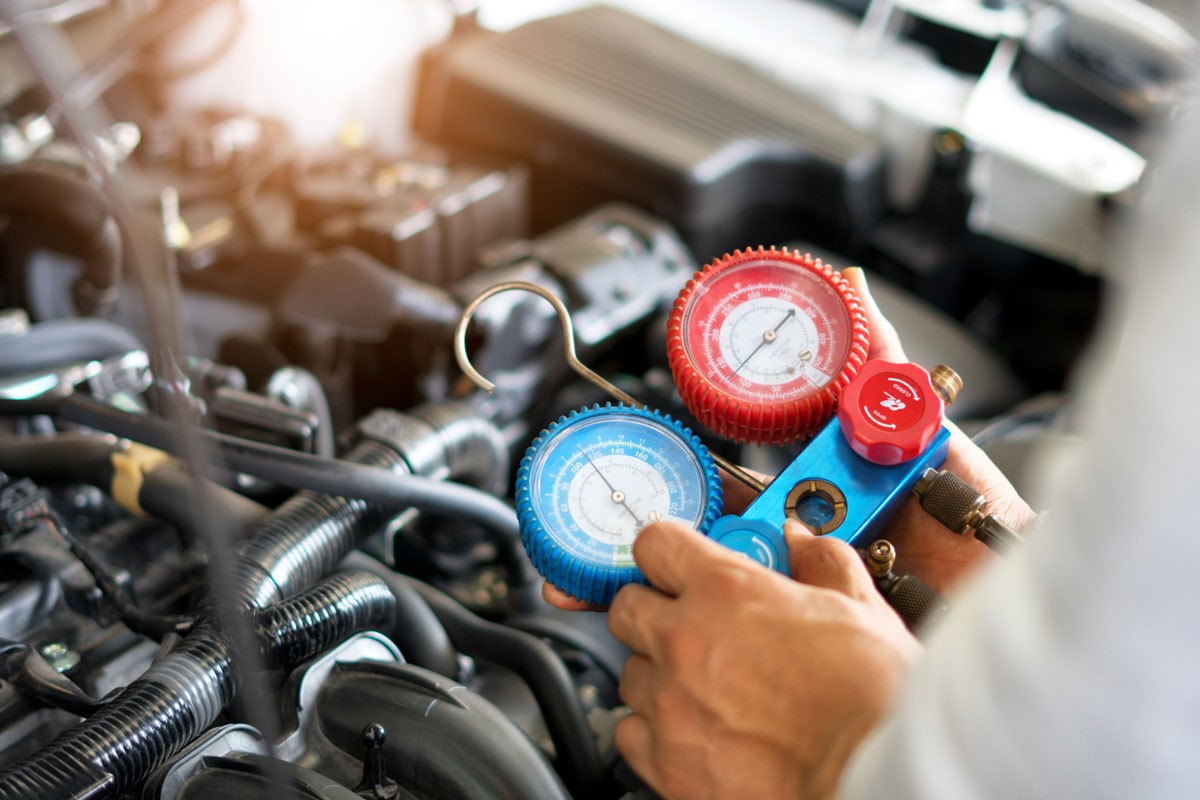
If your car comes with a pressure gauge, any high readings could mean that you have an overcharged system. If your car doesn't have one, there's plenty to choose from in automotive shops. Spare no expense when it comes to buying a pressure gauge. Those that come in DIY kits are not wholly reliable and, as such, will not be able to give you an accurate reading.
If you don't plan on buying one, you can bring your car to an automobile expert. They'll measure your AC system's pressure and purge the excess refrigerant.
Check this pressure gauge on Amazon.
Loud Noises Coming From The Engine
Unusual noise from underneath your car's hood is a telltale sign that there's something wrong with the engine or with one of the components. That's because the engine works harder to allow the excess refrigerant to transform from liquid to gas. In this instance, you may notice a significant drop in power and fuel. It's best to have your car checked at a nearby auto shop. Continuously driving can also cause serious wear and tear to the accessory belt.
So if you hear something snap or rattling within the hood of your car, immediately stop. Bring your car to a nearby auto shop and have them assess the situation.
Engine Overheating
As previously mentioned, too much refrigerant will force your car's engine to work harder. This, in turn, can cause it to overheat.
An overheating engine comes with it a whole slew of new problems. It can cause various components to fail and blow up. You'll end up with a serious issue that will cost you much more.
Damaged Compressor
Lastly, a broken compressor is a dead giveaway of refrigerant overcharging. One way to confirm that a compressor is damage is to look for cracks around the seals. This means that there's a refrigerant leak or oil seeped inside. Both instances will end up breaking the compressor. Unfourtunately, the best solution here is total replacement with a new compressor.
However, this can be costly, so before resorting to this situation, it's best to check on the previous symptoms and exhaust all means to resolve the problem. Getting a new compressor is the last resort.
How Much Does It Cost To Repair An Overcharged AC System?
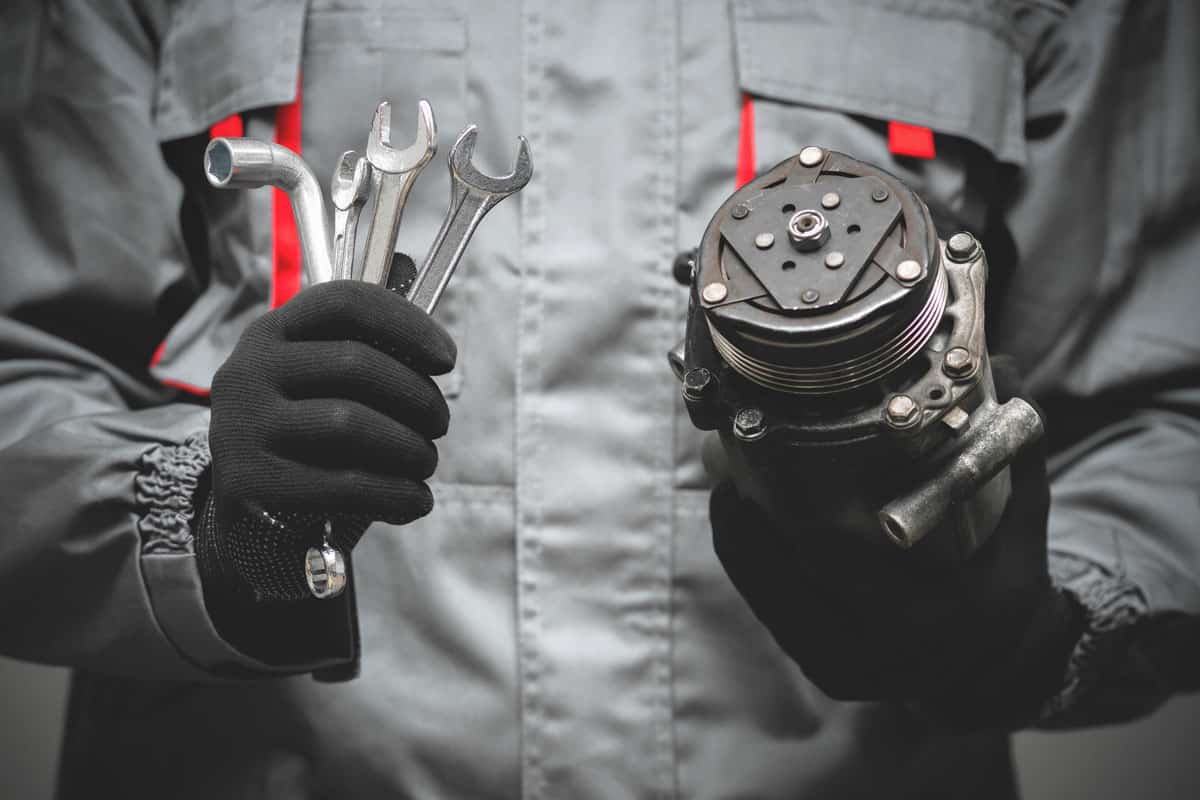
If you're dealing with a refrigerant leak, it will cost you between $160 to $300 to repair, including labor fees. This also depends on your car model and the refrigerant type used. Repairs involving the compressor will cost significantly more. The compressor itself costs around $150. The labor fees of repairing such a tricky component can skyrocket to $800 or more.
To avoid this costly repair, it's best to bring your car to an auto shop for yearly maintenance. You will spot the symptoms early on and can immediately address the issue.
Check this compressor on Amazon.
How Much Refrigerant Does A Car AC System Need?
It's always best to consult the owner's manual to know how much refrigerant your car's AC system needs. On average, most cars can hold a maximum of around 30 ounces worth of refrigerant at a time. That roughly equates to two or three cans of refrigerant.
Do take note, though, that if you're the one recharging your car's AC system, it can be challenging to gauge the correct amount without the proper tools. As such, it's best to let a professional do this job for you.
How Often To Recharge A Car's AC System?
A yearly recharge works best to keep your car's AC system blowing cool air all the time. If you don't often drive or use the AC system, it can take at least two years before your car needs a recharge.
Don't let your vents start blowing warm air before recharging the AC system to avoid unnecessary damage to your car's components.
How Much Does It Cost To Recharge A Car AC System?
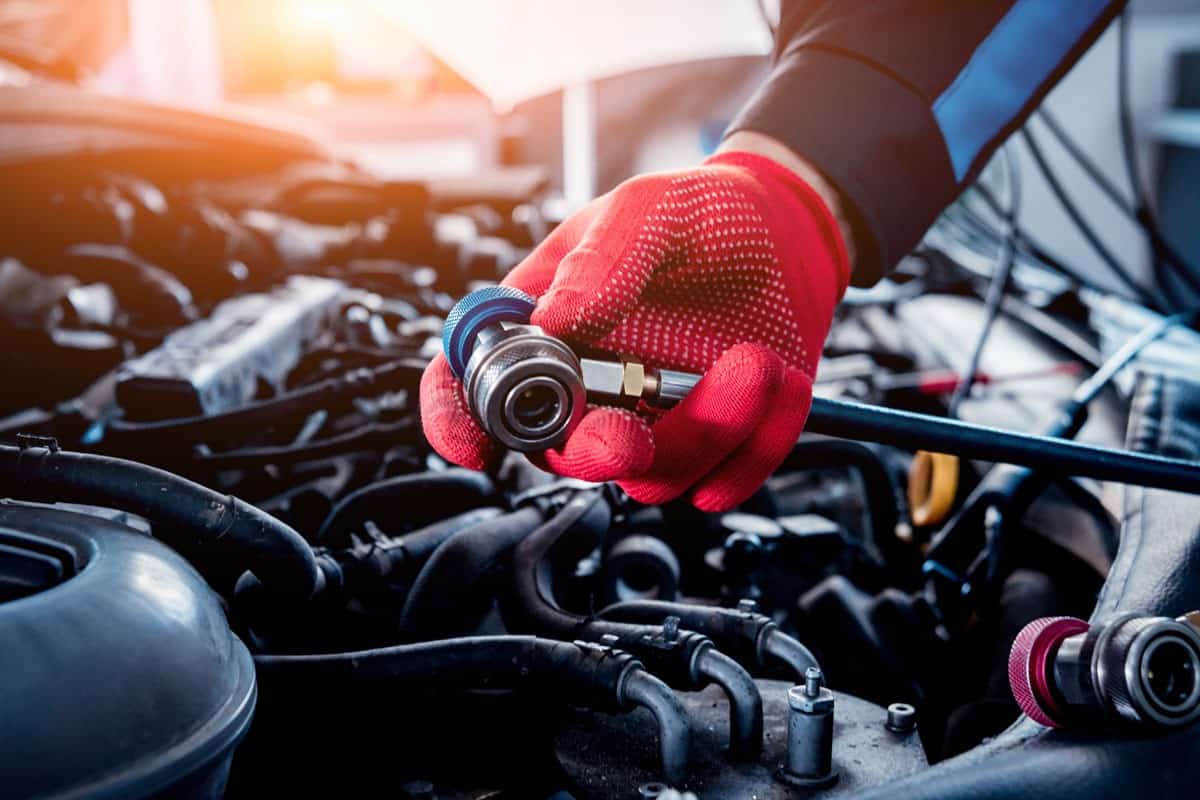
Generally, it will cost you around $150 to recharge your car's AC system. Of course, this doesn't include factors like your car's model, what kind of refrigerant it needs, and the amount it requires.
If your car requires a recharge, it's best to bring it to an auto shop. A trained professional will not overcharge or undercharge your car's AC system, so you need not worry.
Check this refrigerant on Amazon.
To Wrap Up
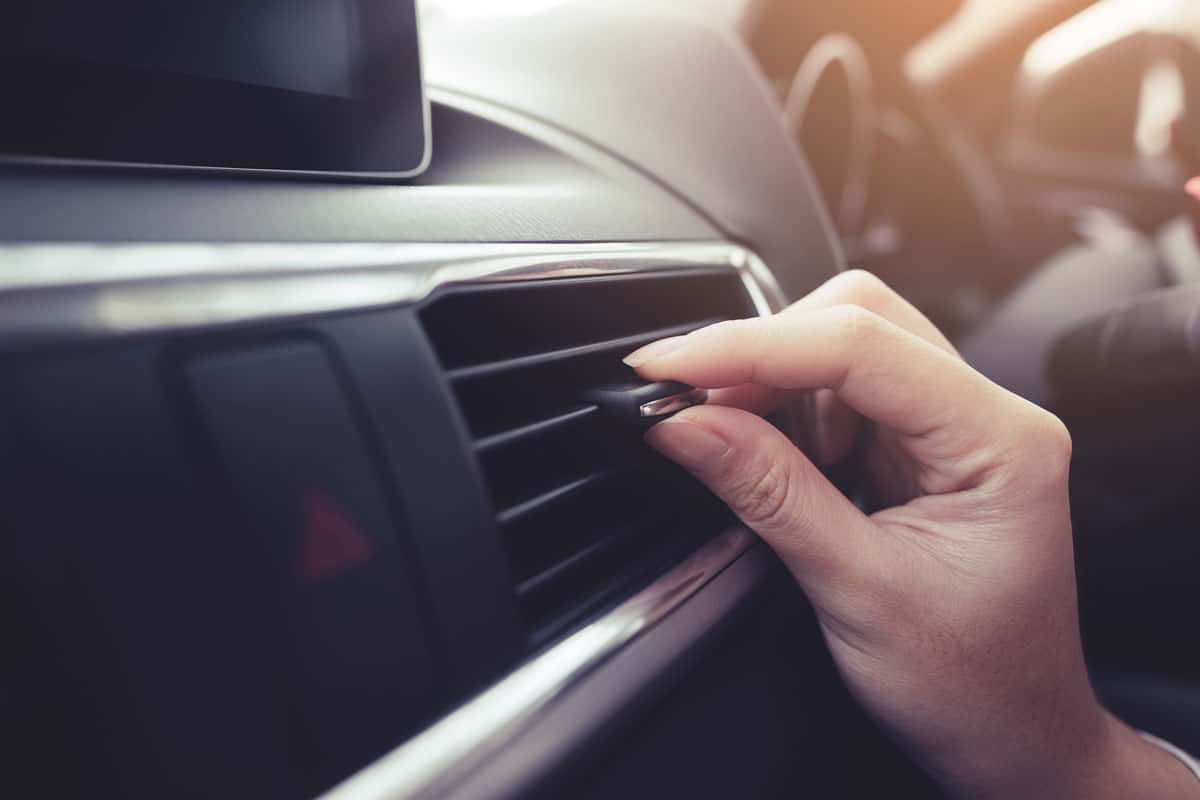
In short, overcharging your car's AC system is never a good idea. Not doing so will it keep you comfortable while driving and will prevent the risky damages it can cause to your car's components. If you ever find your car AC system needing a recharge, it's best to leave it to a professional if you don't have any experience.



